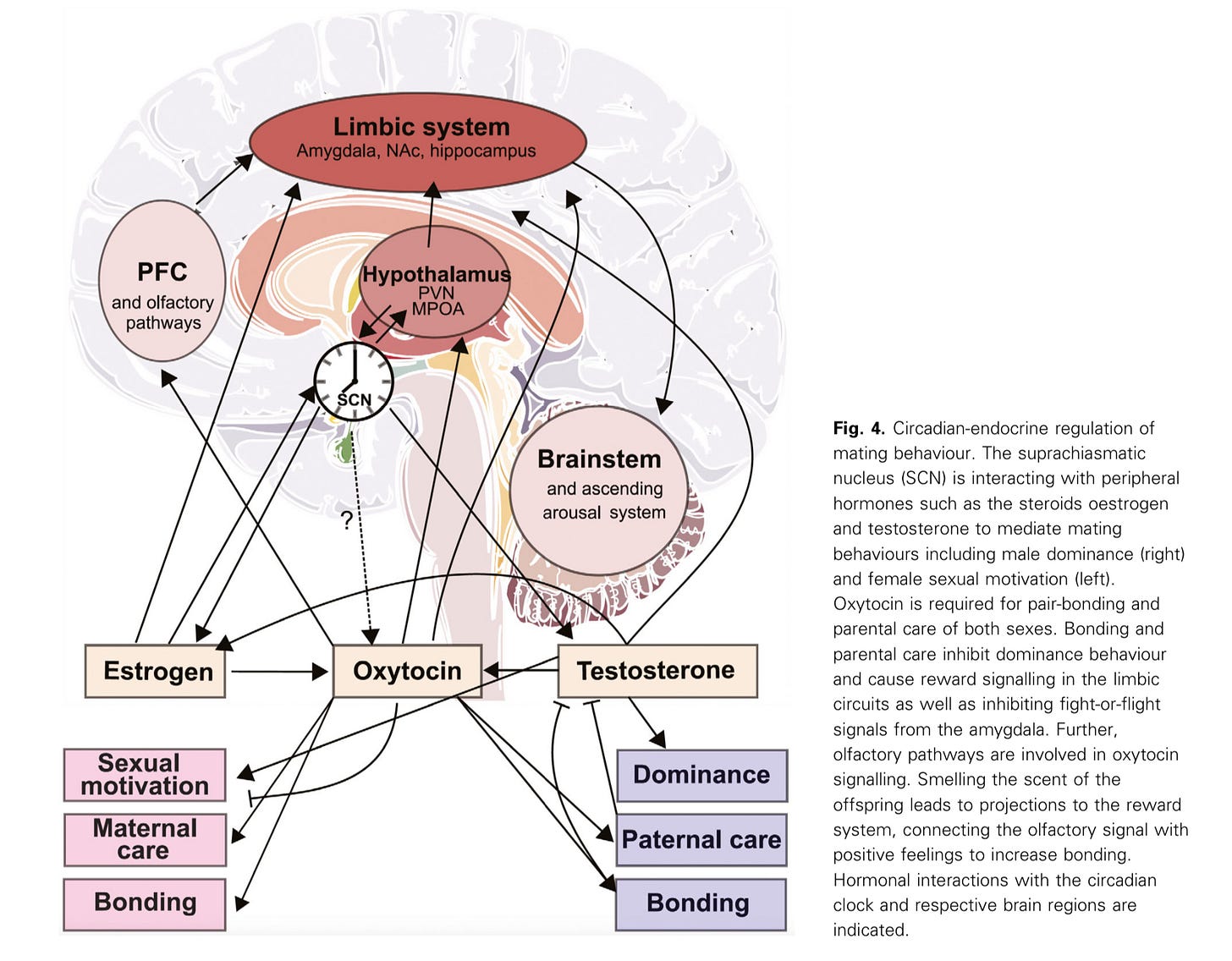Leptin does more than prevent or reverse obesity
If you’ve been working on your circadian health, you’re already working on on your leptin levels, too
Hi, folks! Just a quick post today as I had an aha! kind of moment.
One of my ⚛️ Quantum Tier subscribers was asking me about the connection between circadian health, hormones, and relationships.
This led me to dig up one of the the papers I often reference inside the Circadian and Quantum Childbearing Year program (and other times I’m teaching about how the circadian rhythm influences not only the hormones and things going on inside our bodies, but also the way we may feel like acting) for her.
Yes, we obviously have some level of control over our actions, but we also can see trends based on hormonal flux, etc.
So usually this is the graphic I’m usually pulling up from the research paper because oxytocin is such an important regulator of childbirth and early life development, and it has ties to circadian health we don’t fully understand yet (but definitely are curious about):
To read these graphics, you look at the arrows and the ones with the points show activation, and the ones with…




